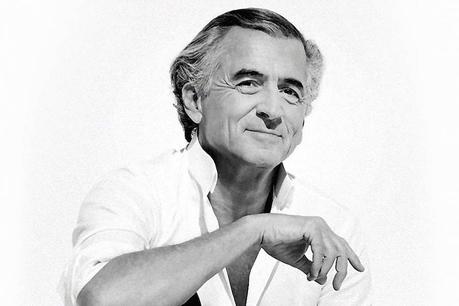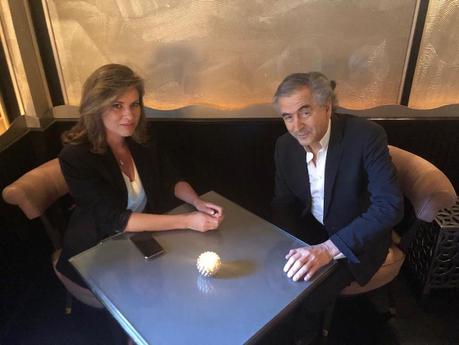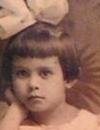One of the great thinkers and intellectuals of our time, Bernard-Henri Lévy (Algeria, 1948) has successfully launched a theatrical tour around Europe with his work Looking for Europe. It premieres in Spain next Wednesday, at the Teatro Olympia in Valencia, then goes to Barcelona and Madrid. In his monologue he defends democratic and liberal values from the threat of populism. He has also just published his book The Empire and the Five Kings, (Henry Holt & Company Inc) that explores the loss of global leadership in the United States and how the five powers, the ancient Empires: Russia, China, Turkey, Iran, and Sunni radical Islamism are weakening the values that have distinguished our western civilisation.
Author: Elena Cué

Bernard Henri-Levy (Ali Mahdavi)
One of the great thinkers and intellectuals of our time, Bernard-Henri Lévy (Algeria, 1948) has successfully launched a theatrical tour around Europe with his work Looking for Europe. It premieres in Spain next Wednesday, at the Teatro Olympia in Valencia, then goes to Barcelona and Madrid. In his monologue he defends democratic and liberal values from the threat of populism. He has also just published his book The Empire and the Five Kings, (Henry Holt & Company Inc) that explores the loss of global leadership in the United States and how the five powers, the ancient Empires: Russia, China, Turkey, Iran, and Sunni radical Islamism are weakening the values that have distinguished our western civilisation.
With this geopolitical analysis of the current global situation, what do you think will happen to Europe?
The first possibility would be for it to disappear from the world map and convert itself into a battlefield between Americans, who are losing their power, and the five new empires trying to defeat them. We may end up being a middle ground, where some will try to overthrow others. The solution would be for Europe to take advantage of this situation, to wake up and become a new superpower. But what is certain is that, in the new configuration of the world, the American umbrella no longer works. Donald Trump has said it very clearly, but Obama had already said it before.
Indeed, the debilitation began before Trump.
Yes, Trump is the epiphenomenon, not the main phenomenon. The main phenomenon is the fact that Europe and America are disconnected, and that happened before Trump.
In reference to the five powers, who you state want to end Europe, what would be their greatest benefit to come from this downturn?
For the forgotten and unfortunate populations, for example, the women of Saudi Arabia, democratic dissidents of China, or the youth of Iran, Europe is an example, a reference and above all, a symbol of hope. Europe is the light at the end of the tunnel. The main interest of these five powers would be to put out that light, to ensure their communities stop dreaming about Europe and that Europe cease to be a symbol of hope for them. As long as Europe exists and is strong, it poses a danger, not only from a geostrategic point of view, but above all from an ideological and spiritual stance. Because for all its people, Europe represents the image of a different future, as opposed to the harsh reality of what they currently are.
It seems that Russia would benefit most from Europe’s current weakness as it would further their geostrategic objectives.
China and Russia share their roles. China has the strength and Putin the intelligence. The money comes from China or the Arabic world, while reflection and strategy come from Putin.
Last year you created the play Last exit before Brexit performed in London. What do you think will happen in Europe without Great Britain?
What we are currently witnessing is that it is not so easy to leave Europe. The Brexit supporters defended their right to control their future, yet three years later, they have not obtained any positive result but they have lost control of the situation. The United Kingdom is out of control, although they are still in time to wake up from this nightmare.
Are you optimistic?
Rather realistic. Without Europe, the United Kingdom is going to collapse, and without the United Kingdom, Europe will suffer serious damage to its spirit and heart. Democratic liberalism and the merger of the political and economic is an English contribution; it was their great understanding of the best system for society, which the English devised in the XVIII and XIX centuries.
You also objected to the way Cameron used the referendum. Why is that?
Because you cannot respond with a "Yes" or "No" to such complex political issues. I'm not saying that people cannot have an opinion on such matters, on the contrary, it is exactly what democracy is about. However, it was a very broad issue which implied centuries of history, memory and ties between the United Kingdom and the rest of the world. The referendum should be seen as last resort after the other democratic possibilities for political decision-making have already been exhausted. The difficult thing about democracy is that it requires deliberation and commitment. When we are about to answer with a "Yes" or "No", you have to ask, are we in a plebiscitary or a Caesar-like regime? Or are we in a regime where democracy serves as an alibi for tyrants?
In Looking for Europe, you intend to influence the next European elections by drawing attention to the threat posed by populism. How do you think Europe can fight populism?
Populism is a threat to ideas, intelligence and beauty. It is also a threat to the complexity of things and to coexistence. Democrats and Liberals have to wake up and start fighting. They are too timid. I call for an awakening, which is the meaning of this work. It is not just a cry for attention. As liberal Europeans we do not want the simple solutions populism and the independence movement offer, and for that reason we have to wake up and speak up, bringing together the true power of speech and accept our opinions. If you are pro-Europe and pro-capitalism, you say it but in a very quiet voice. For example, the war against the elites is a disgrace and a suicide for Western democratic societies. We need to say all that before it is too late.
All of this is present in your work?
I speak of the "yellow vests" and of the outraged, of this whole movement which in my opinion, under the guise of democracy, is actually undemocratic. They are going to drag along our societies, just like at the fall of the Roman Empire or the end of classical Athens. I do not want that, which is why I have fought in places as far away as Afghanistan, Pakistan, or Kurdistan throughout my whole life. Now, I am convinced that the fire is in my house. And my house is France, Spain, Italy... That is why I have written this play, to return home and confront the war that has been declared by the populists.
Is the neoliberal ideology that caused the 2008 crisis not another equally dangerous threat against democratic and liberal values?
Yes, but it is a threat that can be controlled. Liberal capitalism has many flaws, but it has one virtue: it is constantly in the process of auto correction. It goes from crisis to crisis and it is the only economic regime in history to survive and overcome them. It is not the perfect correction, we know that there are bankers who have not understood the lessons of 2008, but capitalism is a machine that integrates the lessons of the past. It always has been. In this sense, yes, it is a threat, but a controlled one.
In 1976, you promoted the movement of the so-called new French philosophers, one of which was Alain Finkielkraut, who has just become the target of an anti-Semitic attack lead by a part of the yellow vests. The acts against Jews increased by 74% in France last year. Why do you think this is happening?
The real problem is not only that one group has insulted Finkielkraut, but that all those surrounding groups, such as the "yellow vests" in Paris and other cities, have not stood up in protest and said: "Not in our name!" Journalists in France say it is a small group. But why has the big group not condemned this aggression?
It is worrying.
We are experiencing the third great period of anti-Semitism in France and Europe. The first one was at the end of the XIX century, the second one during the 1930s and the third one is today. We know how the first two periods ended: in the worst possible way, in the form of suicide for European societies. What we can expect from this third period is that at least we have learnt the lessons from the past.
"Anti-Zionism is one of the modern forms of anti-Semitism." Do you agree with these words by President Emmanuel Macron?
I do not think that is the point. You can be a Zionist or not, you can love Netanyahu or hate him. The point is that nowadays, if you want to create and see an anti-Semitic movement grow, the only way you could do it is to be an anti-Zionist at the same time. It is a matter of political mechanics.
Why?
Because what an anti-Semite needs is to convince people that there are good reasons to hate Jews. What are they going to say today? That the Jews have a different chromosome? That they have killed Christ? No, of course, that does not work anymore. The only way anti-Semitism could work today is to say that Jews are friends of a State that is very bad and possibly fascist in dealing with another group, the Palestinians. If you manage to develop this notion, then you can create a real anti-Semitic movement in Europe. In terms of mechanics, ideology and politics, that is the only way. I am Jewish, but not Zionist. If I were a Zionist I would live in Israel and believe that this is the fate of the Jews.
What is the solution for Palestine?
Two states, one next to the other.
In your book, you also speak about the betrayal of the Kurds. They are courageously carrying out their duty fighting against the Islamic State. The Kurdish people are very grateful to you for your support with this book and your documentaries. As an opponent of nationalism, why do you defend the Kurds' pursuit to form their own nation in this case?
The difference is that they are being massacred by Erdogan, by the Iranians, and by Bashar al-Ásad. If the Barcelona separatists were faced with a dictator who killed them, I would be in favour of their independence. But they have a democracy, which is the exact opposite. For more than a century the Kurds have been annihilated by the powers that control them. In this case, independence is the only way out of death. Therefore, I am not in favour of their independence for nationalist reasons. I have never been a nationalist. I am interested in human rights and the rights of the body, meaning the right that the body is not martyred, tortured or end up assassinated.
It also shows that the Kurds profess a more moderate Islamism.
That is the second reason. It is something I mention a lot in the theatre performance. In Europe, we are desperately looking for the ideal Islam, one that is compatible with democracy, human rights, secularism, etc. An Islam that has the ability to overcome Islamic Jihadism and the terror we have of it. We had it in Bosnia and we have it in Kurdistan and in both cases we can observe the tragic paradox of Europe. This is one of the main themes of my play: when we have them, we let them fall. This is a spiritual, metaphysical, political and moral error.
The Muslim population in the West is increasing, particularly in France. You wrote the book Public Enemies with Houellebecq. Do you think it would be possible to have an Islamist government in France, as you write in your book Submission?
No, because Europe's liberal civilisation is much stronger than Houellebecq realises. It has the capability to integrate elements from other parts of the world, including Islam, but not to be devoured by Islam, that is not going to happen. I believe that the European civilisation is very strong; the only empire to survive all its crisis’ is the European Empire. "Empire", not to be understood in the sense of imperialism, but looking at Europe as a civilisation which, beginning with the Roman Republic, has continuously survived its looming death in order to revive. It is a unique case as with the other empires, when they die, they die. Europe may seem to die, but it comes back. In my work, I say that Europe, the West, is the only empire where its grave is always a cradle.
In your book The Genius of Judaism, you state that in Judaism the focus is not necessarily on believing in God, but more importantly on the study and understanding of God. Continuous questioning and reinterpreting.
That is what the Jews are asked to do. It is not so much about believing, but is about studying. Understanding, working and introducing more complexity in the world, or at least interpreting the complexity that occurs in the world and avoiding simplification.
You have mentioned that your way of thinking would not be the same without Foucault and teachers like Althusser or Derrida. From this multiplicity, how would you pinpoint your philosophical thought?
My way of thinking has roots, but the product comes from me. At my quite advanced age, I really believe this. I am not anyone's son. I was a good son, first to my parents and then to my teachers. I believe that today I think at my own risk and from a perspective that is mine. Indeed, the roots come from French structuralism, Jewish thought and Albert Camus. Those are the three great pillars.
A big feminist demonstration has taken place recently. In your book Women and Men written with Françoise Giroud it seemed that your thought was closer to the feminine while Giroud's was closer to the masculine. What do you think?
The relationships between men and women, and in particular my relationships with women were, and still are, one of the great subjects of my life. Secondly, and it may not be very politically correct, I think that for a man women are a mysterious, unknown, foreign continent. Thirdly, I support all the claims of neo-feminism, because to say that it is a distant and mysterious continent does not imply that equality has already been achieved or that there are no wrongdoings. For example, I have always thought that if I were a woman, sexual harassment would drive me crazy. Today there is an awakening in society to say 'enough is enough '. Women have the power and the right to say 'yes ' or 'no' or 'maybe '. That is a revolution.

Bernard Henri-Levy during the interview.
- Interview with Bernard Henri-Levy - - Alejandra de Argos -

